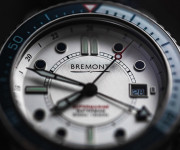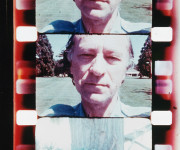Russian Icon Collection, a leading contemporary online gallery of antique Russian icons, was invited to the fifth online forum titled “Russia and Ibero-America in a Globalizing World: History and Modernity.” The event took place online via Zoom and offline at Saint Petersburg State University on October 4-6. Together with the Hermitage Museum, Russian Icon Collection had the honour to join the round table on the topic “Latin America and Russia: Ways and Practice of Interaction in Art.” Several different specialists, all with different backgrounds, came together to discuss how the culture and art of the two countries influenced each other historically.
On October 4-6, 2021, the Saint Petersburg State University was holding the fifth international forum, “Russia and Ibero-America in the Globalizing World: History and Modernity.” The forum is considered one of the most significant events in Russia devoted to economic and socio-political processes between the two countries. Scientists, politicians, and journalists from Russia and Ibero-American countries share their experience and knowledge to formulate new approaches to establish more effective relations between the countries.
The round table “Latin America and Russia: Ways and Practice of Interaction in Art” was an essential part of the forum. The list of participants included Arturo Saucedo, Sofia Lokanova, Anna Chernysheva, Carlos Cañas Rojas, and Anna Goncharova. Russian Icon Collection was represented by Ilya Kushnirskiy, a co-founder of the company. Olga Yudina was speaking on behalf of the Hermitage Museum. She is a well-known art historian and expert on Mexican and Russian Art and a manager at the Development Department at the State Hermitage Museum.
One of the missions of the round table was to throw light on the dissemination of Russian art and culture within the territories of Latin America. Special attention was paid to Christianity and the spread of Russian Orthodox churches. With the great migration at the end of the 19th century, many emigrants started to bring and integrate Russian icons into the local culture and the Latin society. While such religious icon art was foreign to the majority of locals, it did have an impact on the people’s perception. When the popularity of icons and frescos grew, people started to organize art exhibitions and decorate public places with holy images. With time, images became known to most of the Latin world.
“Latin America and Russia: Ways and Practice of Interaction in Art” became a cultural bridge and a dialogue between two countries. By understanding the past, it is possible to find more effective ways and approaches to build a long-term partnership between the countries, especially when it comes to art that has already become part of the local tradition.






